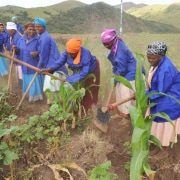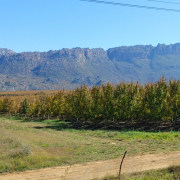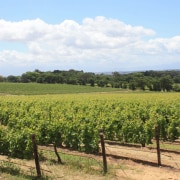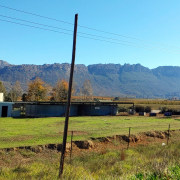|
Getting your Trinity Audio player ready...
|
Image: Corruption Watch
Episode 1 of our new podcast series on land corruption laid down the background to the Land and Corruption in Africa phase 2 (LCA2) project, driven by Transparency International (TI). Project leaders from Corruption Watch (CW) and TI spoke about the areas in which they want to see change happen and the research done so far, community activists painted a disturbing picture of ruthless corruption between companies and authorities and threats to livelihoods and lives, and representatives of other organisations told of discrimination and hardships against marginalised people.
The podcast series is titled Land and Corruption: Story of the Marginalised.
Join podcast host Melusi Ncala for episode 2 of this gripping series, as discussion moves towards land in the agricultural sector – this was CW’s focus area in LCA2. With a wide range of guests, from grassroots civil society organisations and activists to individuals on the left and right of the political spectrum, he explores the contentious issue of land in South Africa, its importance as a critical resource and foundation for sustainable livelihoods, and the way the land system works in practice in this country.
Listeners will hear contrasting opinions from those on the left who believe land should be returned to the black majority because of the country’s colonial past, and those on the right who believe that inequality and poverty can be addressed through employment and access to property rights.
The discussion also extends to the fragmented legal framework that makes it difficult for people to obtain security of tenure, while also reviewing the intersection of gender, race, land rights and corruption.
“There hasn’t been a real desire from the department [of rural development] and from government to try and deal with the gaps [in legislation],” says parliamentary researcher Mashudu Masutha, one of the people interviewed in this episode.
This sentiment is echoed by others.
The role of traditional leadership as a stumbling block also comes under the spotlight. “Practically, traditional leaders are a law unto themselves, essentially acting as a fourth tier of government,” says researcher Tshepo Fokani of the Alliance for Rural Democracy. She is another interviewee who shared her thoughts, based on her experience with the alliance of organisations.
For the full details, listen to episode 2 of Land and Corruption: Story of the Marginalised now.
NOTE:
This podcast series is made possible by funding received from Transparency International. For more on CW’s work, including research reports and toolkits on land corruption, please visit our website at www.corruptionwatch.org.za. Our e-mail address is info@corruptionwatch.org.za. You can call us on 011 242 3900.







